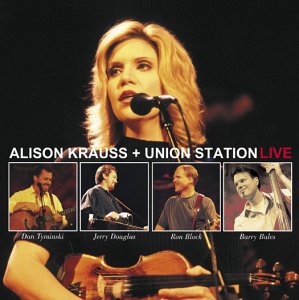
- Format: MP3

Given Alison Krauss' tremendous popularity and her status as the first female bluegrass singer to cross over into genuine pop marketability, and given the fact that her guitarist, Dan Tyminski, is the voice behind "Man of Constant Sorrow" (or at least the version that served as an idée fixe in the blockbuster movie O Brother, Where Art Thou?), a live album was inevitable. That it should be a two-disc set can simply be chalked up to good luck. Unless you're a bluegrass purist, that is, looking for music that preserves the traditional Appalachian sounds of Ralph Stanley and Bill Monroe. Listeners of that mindset will be bitterly disappointed by the presence of modern singer/songwriter fare ("Lucky One," "Let Me Touch You for a While"), by the drums on "Oh, Atlanta," and, most of all, by those dreadful call-and-response vocals on the chorus of "Man of Constant Sorrow" (which, you can hear them sniff, Tyminski takes at about twice the appropriate speed). All of this would explain why bluegrass purists are no fun to be around and, one suspects, don't have very much fun in private either. The simple fact is that every time Krauss opens her mouth to sing, angels stop what they're doing and take notes. There may be no musical pleasure quite as pure and sweet as listening to Krauss sing "Baby, Now That I've Found You" or "When You Say Nothing at All." And when she starts in on the impossibly beautiful gospel tune "Down to the River to Pray," the effect is almost disturbingly moving. Which brings listeners to the problem with this album, which is the amount of time it spends on stuff other than Alison Krauss singing great songs. The instrumental bits, the Jerry Douglas showcases, and Tyminski's requisite rendition of "Man of Constant Sorrow" are all fine, but they end up feeling like filler. Still, this album can be solidly recommended to modern bluegrass fans in general and to Krauss' many fans in particular.